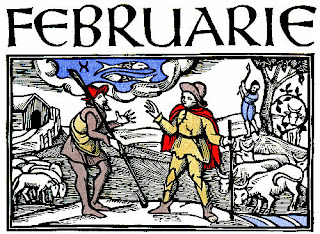Local sanitation workers from the Afghan city of Kabul were removing waste from the air base north of there when they discovered some partially burnt copies of the Quran. Apparently the books had been confiscated from a detention centre’s library after Taliban prisoners were suspected of using them to pass messages to each other. The books had inadvertently been disposed of incorrectly, and wound up in an incinerator.
U.S. officials on the scene were quick to apologise for this, and assure
the local government that not only was this not intentional, but that it would
be investigated, and steps taken to ensure such a mistake would not happen
again.
NATO commander General John Allen had this to say of the incident:
"When we learned of these actions, we immediately intervened and stopped them. The materials recovered will be properly handled by appropriate religious authorities,"
, and:
"We are thoroughly investigating the incident and are taking steps to ensure this does not ever happen again. I assure you, I promise you, this was not intentional in any way."
A very quick and overtly anxious apology for a seemingly innocent
mistake. You can sense the fact that there is little doubt that such a thing
will bring about a violent response.
It is odd that we live in the third millennium, hundreds of years after
the enlightenment, and yet we can still count upon violent and murderous
reactions from not only the desecration of a mere book, but also any instances
of its accidental destruction. Exemplifying this tacit acceptance of Muslim
overreaction, the President of the United States also went out of his way to
send a letter to his Afghan counterpart, apologising for the incident.
The Associated Press reports the letter from Obama expressing "deep
regret for the reported incident", with the president then going further
to state that "The error was inadvertent; I assure you that we will take
the appropriate steps to avoid any recurrence, to include holding accountable
those responsible".
In a response to the events, the Afghan president Hamid Karzai remarked
that the American officer responsible for the partial smouldering acted
"out of ignorance and with poor understanding" with regard to the
Qurans importance, but his government has nevertheless put forth an official
demand that there be a public trial and punishment for those involved.
NATO has agreed to a trial, and assured that such things will not happen
again in the future, though one wonders if this will be enough to placate the
Afghan government. After all, there is a tacit acceptance of the fact that this
was not intentional in the President Karzai’s remarks, yet the steadfast demand
of punishment for those involved seems a bit sinister to me. After all, what
form of trial and punishment under American principles could result in a
satisfying outcome for the Afghan people?
Speaking of the Afghan reaction, it is important to realise what has
happened in response to this discovery of partially burnt books; after all it
is not merely a diplomatic affair, and the easily inflamed muslin sensibilities
I mentioned earlier have again been quick to take offense wherever they find it.
Over the past few days protests have erupted across the Afghanistan
countryside, and Taliban officials have made their all too common call for
blood. A statement from a Taliban spokesman named Zabiullah Mujahid was spread
via email calling for the Afghan people to
"kill them (Westerners), beat them and capture them to give them a
lesson to never dare desecrate the holy Koran again".
Though the effectiveness of this teaching method is quite dubious, the
call to arms has nevertheless achieved its effect on members of the Afghan
population, including an incident where a man wearing an Afghan military
uniform opened fire on two NATO at
a military base in Khogyani in eastern Nangarhar province, killing them both.
Honestly as much as the Taliban likes to present themselves as a pious
Muslim group, any cursory look at their credentials and past actions soon takes
them down a peg as people able to criticise the American military’s accidental
destruction of these books. The Taliban regularly attacks not only western
troops in their country; but also their fellow countrymen. There is no way you
can tell me that in their campaign of indiscriminate bombing and murder, they
too have not been responsible for the destruction of a few Qurans as literary
collateral damage.
In total eleven people have died so far at the hands of these
protestors, none of which had anything to do with the accidental burning of
Qurans. It’s such a terrible loss of life, and writing this now I still find it
hard to accept these events as really taking place in the age we live in.
People being killed because a book was burned; it sadly proves Heinrich Heine
quote to be all too true.
The shear irrationality
of the response is striking. Angry crowds can be seen roaming the streets of Afghan towns,
black smoke billowing into the sky behind them as they chant “Death to
America" and "Die, die, foreigners".
But again, as hard as it seems to reconcile these facts with the way we
believe the world should be, a quick look at the past few years in Afghanistan
shows us that sadly this is all but the norm over there.
Let’s not forget that last year the intentional burning of a Quran 12,000km
away in the United States caused a similar response in this oh so offendable portion
of the Afghan public. 12 people were killed then when a mob stormed a United
Nations office, and a further 12 protestors were killed in other demonstrations across the country.
Going back even further, in 2005 after rumours of a Koran being
desecrated in Guantanamo Bay were promulgated, riots and spates of indiscriminate
killing left at least 17 people dead. And this time it was just rumours!
At least back then the Afghan president was quick to denounce the
violence, and himself pointed out that a library set alight by fanatics in
Jalalabad had contained over 200 copies of the ‘holy’ text, yet there is never
any retaliation for the loss of these tomes.
An article in the New York Times captured the irrational nature of these
frenzied protests. It reports that in one town subjected to various violent
protests and shootings, interviewed townspeople “were sometimes confused about
details, but they were convinced that Americans had done something terrible
against their religion”.
That such a fury can be whipped up in a population based on spurious
claims, distant benign events, and accidental actions, is a very worrying
thing. Stories of protests turning into mobs, and Taliban agents fanning the
flames of hatred, are only possible when we afford things in the real world a
divine status, and put their importance above such earthly affairs as human
life and dignity.
The sight of these partially burned book can whip up a frenzy of
violence and denunciation toward ‘westerners’, yet pictures of young Afghan
girls whose faces have been melted away through vicious acid attacks produce no
similar outrage against the Taliban agents responsible.
There will be a trial soon of the people at the American base who some
would say are responsible for this incident, but no doubt the outcome will do
little to placate those incensed by the past day’s events. There is simply no
way that you would be able to apply any form of rational secular justice on
whoever is held responsible that would be considered acceptable by those who
believe their books to be written by a god, and whose desecration demands a far
more earthly punishment.
Even if you are willing to concede that there should be a punishment
given to those who wilfully desecrate objects of religious importance to other
people (and I don’t think such a concession should be made, provided there is
no destruction of private property), this case provides a clear example of not
only an accidental or improper destruction of religious materials; but also one
that was intended to be done privately, so that no anguish or offense was the
intended result.
Those who resort to violence in order to force their religious views
onto others should be looked upon with derision, and those who inflict this
most foul tool upon innocents, and do so indiscriminately in the name of their
god, should be afforded no place in modern society.
And that is the end of my surprisingly long rant.
MM
MM



.JPG)































.svg.png)


